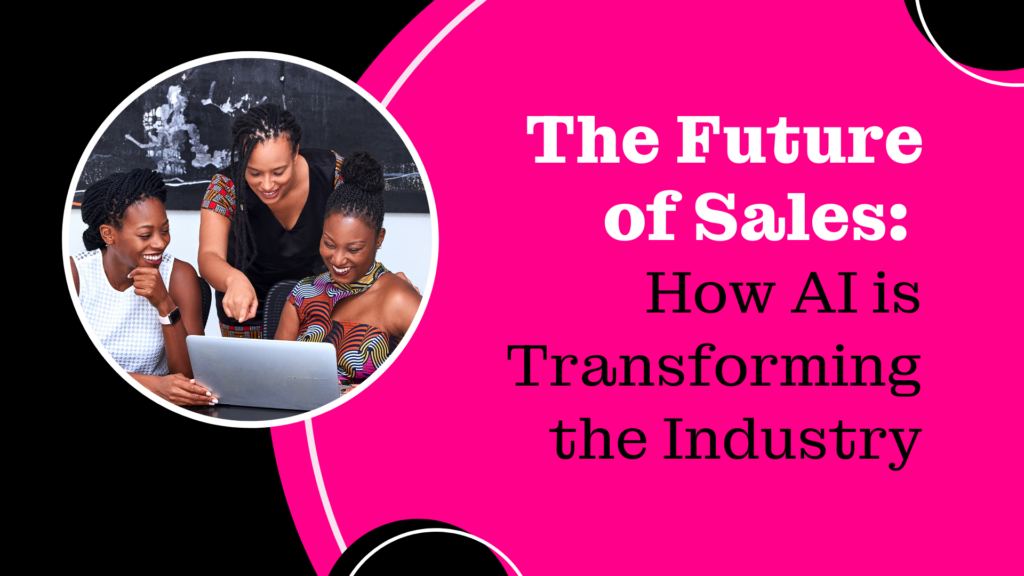Artificial Intelligence (AI) is revolutionizing industries across the globe, and sales is no exception. As advances are made, the impact of AI on sales processes, productivity, and customer engagement is becoming increasingly significant. Understanding these changes and leveraging AI effectively in sales can provide a competitive edge. This blog explores the latest updates on AI in sales and offers actionable recommendations for salespeople and sales leaders to implement right away.
Understanding AI and Its Capabilities in Sales
AI in sales refers to the use of machine learning, natural language processing, and predictive analytics to enhance various aspects of the sales process. From automating routine tasks to providing deep insights into customer behavior, AI is transforming how sales teams operate. Current trends include AI-driven chatbots, advanced CRM systems, and predictive analytics tools that forecast sales outcomes with unprecedented accuracy.
AI-Driven Sales Processes
Lead Generation and Qualification: AI automates lead generation and scoring, ensuring that sales teams focus on the most promising prospects. Tools like HubSpot and Salesforce Einstein use AI to analyze vast amounts of data and identify high-quality leads. By implementing AI-powered lead scoring tools, sales teams can prioritize high-quality leads and focus their efforts more efficiently based on how qualified their prospects are.
Sales Forecasting: AI enhances the accuracy of sales forecasts by analyzing historical data and current trends. Tools such as Clari and Aviso provide detailed sales predictions, helping teams plan more effectively. Utilizing AI-driven analytics helps refine sales forecasts, allowing for better planning and resource allocation.
Personalized Customer Engagement: AI personalizes customer interactions by analyzing behavior and preferences. Tools like Drift (SalesLoft) and Conversica create tailored email campaigns and sales pitches, enhancing customer engagement. Research shows that personalized emails outperform emails that lack personalization, drawing a very strong 41% click-through rate on average when an email is properly personalized. Leveraging AI to create personalized email campaigns and sales pitches can resonate more effectively with individual customers.
Enhancing Sales Productivity with AI
Automating Administrative Tasks: AI reduces the time spent on administrative tasks by automating data entry and task management. CRM systems like Zoho and Pipedrive use AI to streamline these processes by automatically logging communications, updating customer records, scheduling follow-ups, and providing intelligent task reminders based on previous interactions, freeing up time for more strategic activities. Adopting AI-powered CRM systems automates routine tasks, allowing sales teams to focus on high-value activities.
Intelligent Sales Assistants: AI assistants provide real-time insights and support during sales calls. Tools like Gong and Chorus (ZoomInfo) use AI to analyze conversations and offer actionable advice. Integrating AI sales assistants enhances the effectiveness of sales calls by providing real-time insights and support.
Improving Customer Insights and Analytics
Predictive Analytics for Customer Behavior: AI predicts customer behavior and preferences by analyzing data from various sources. Tools like InsideSales and Infer provide insights that help tailor sales strategies to individual customers. Predictive analytics works by examining past customer interactions, purchasing patterns, and other relevant data to forecast future behavior. This allows sales teams to anticipate customer needs, tailor their messaging, and time their outreach more effectively. Using predictive analytics to refine sales strategies enables more precise targeting of customers based on their predicted behavior, ultimately increasing the likelihood of successful conversions.
Sentiment Analysis: AI analyzes customer sentiment from communications and feedback, providing a deeper understanding of customer emotions. Implementing sentiment analysis tools helps better understand and respond to customer emotions, improving overall customer satisfaction.
AI for Sales Training and Development
AI customizes training content based on individual needs and performance. Platforms like Lessonly (Seismic) and MindTickle use AI to analyze each salesperson’s strengths, weaknesses, learning pace, and preferences. By doing so, these platforms can recommend specific modules, exercises, and resources tailored to address individual gaps and enhance existing skills. This personalized approach ensures that training is relevant and engaging for each learner, leading to better retention and application of knowledge. Utilizing AI-driven training platforms delivers tailored training programs that address specific skills and knowledge gaps, resulting in more effective and efficient learning outcomes.
AI is undeniably transforming the sales industry, offering tools and insights that enhance efficiency and effectiveness. Salespeople and sales leaders who embrace these technologies and adapt their strategies accordingly will be better positioned to succeed in a rapidly evolving landscape. By leveraging AI for lead generation, sales forecasting, customer engagement, and training, teams can achieve greater productivity and drive better results.
Stay ahead of the curve and join the SIS community to learn more about AI in sales. Register for the 7th Annual SIS Summit today to network with industry experts and gain valuable insights into how AI can revolutionize your sales strategies. Don’t miss out on this opportunity to elevate your sales leadership skills and drive your team to success.




